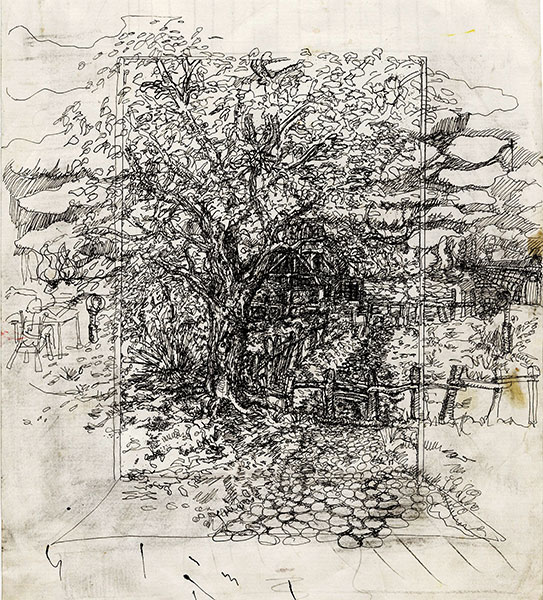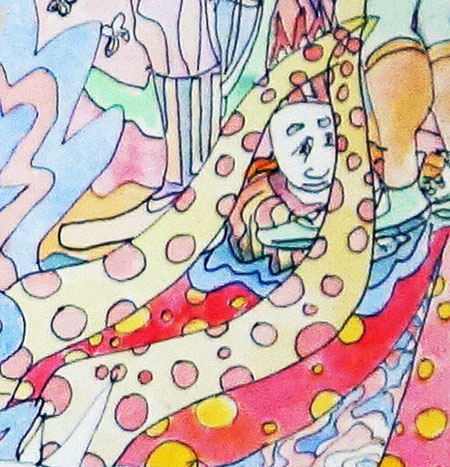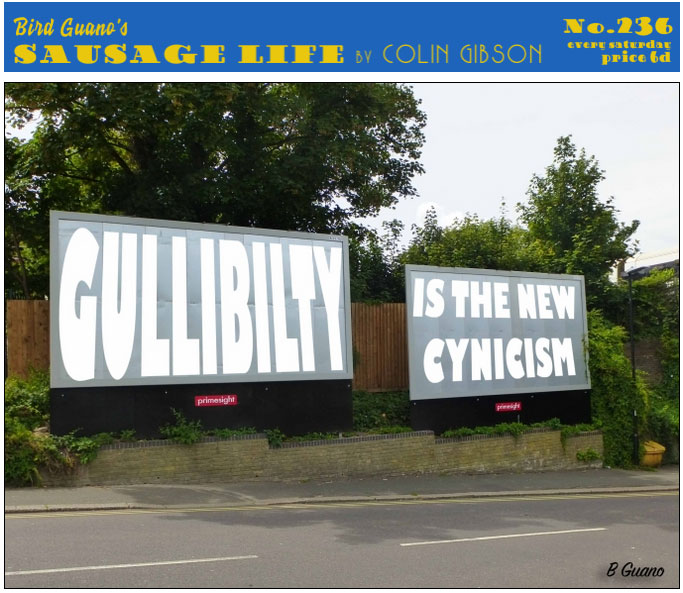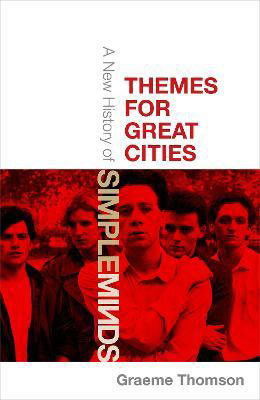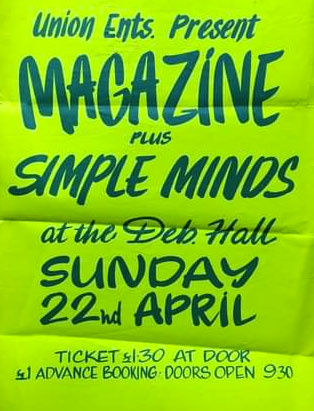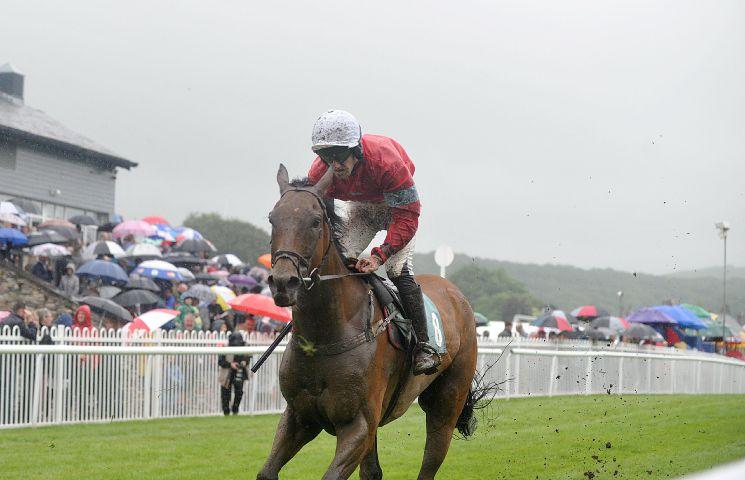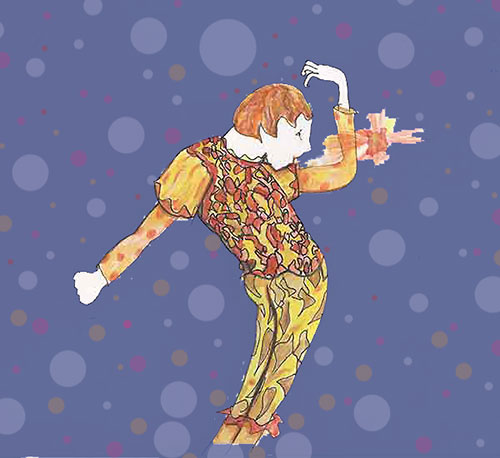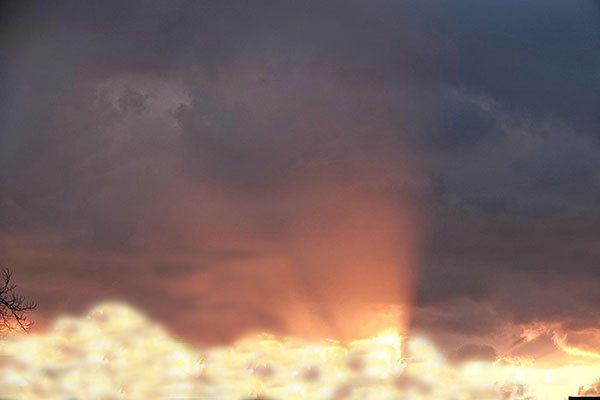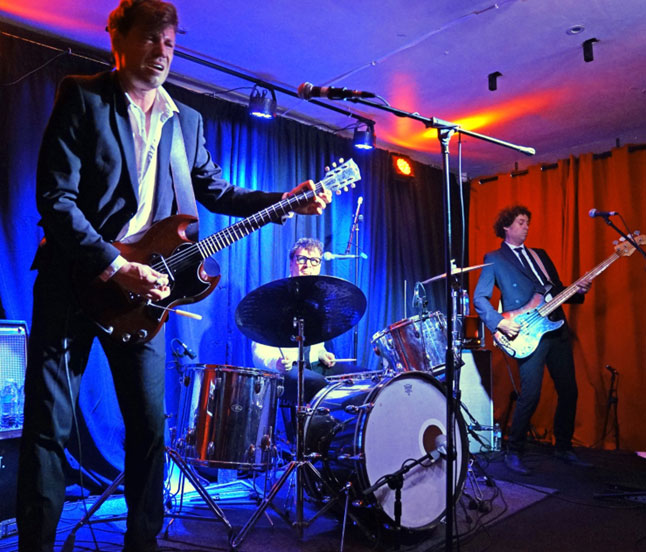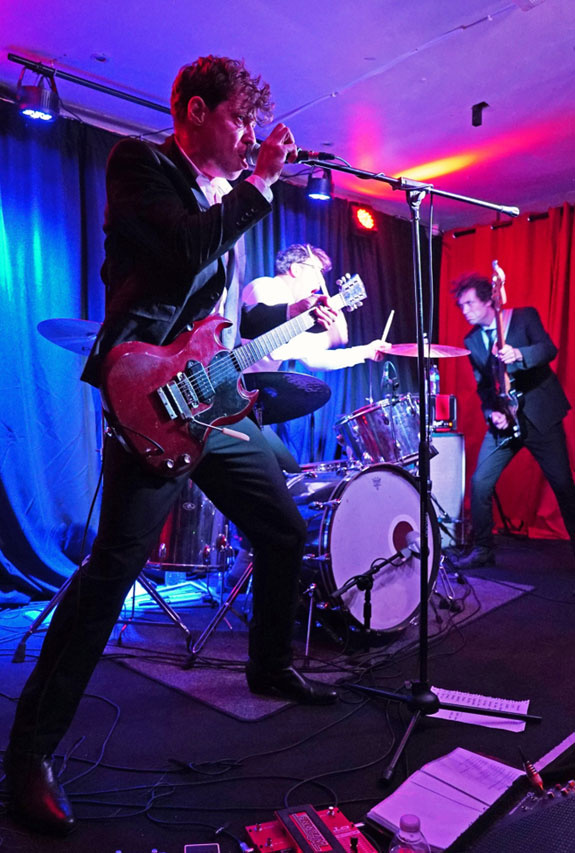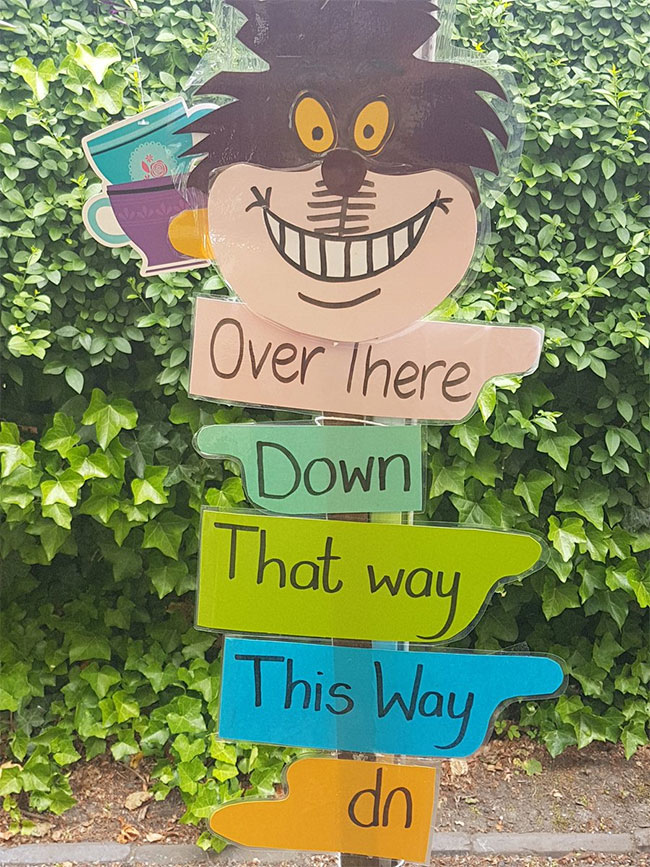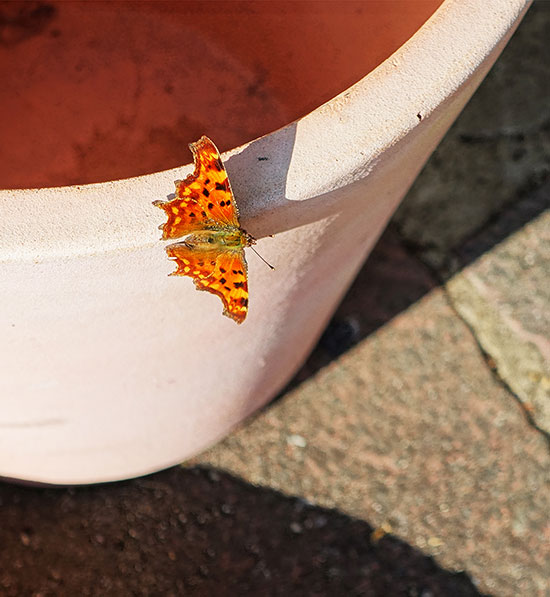By James E. Lovelock, Coombe Mill, St. Giles on the Heath, Launceston, Cornwall, England. Copyright 1989 by the American Geophysical Union. Published in Reviews of Geophysics 17, 11 May 1989, pages 215-222.
Abstract. The Gaia hypothesis postulates that the climate and chemical composition of the Earth’s surface environment is, and has been, regulated at a state tolerable for the biota. This notion was introduced in 1972 and 1973 (Lovelock, 1972; Margulis and Lovelock, 1974; Lovelock and Margulis, 1973). The wording of these early papers was sometimes poetic, rather than scientific, but Gaia has matured and might be better stated as a theory that views the evolution of the biota and of their material environment as a single, tightly coupled process, with the self-regulation of climate and chemistry as an emergent property. It is a theory that makes “risky” predictions, for example, that oxygen is and has been regulated during the existence of land plants, within ± 5 of its present level; it is therefore falsifiable. Numerical models are used to illustrate the potential for stable self-regulation of tightly coupled systems of organisms and their environments.
Introduction
There is growing recognition of the inadequacy of the separated disciplinary approach for the solution of planetary scale problems. To understand even the atmosphere, which is the simplest of the planetary compartments, it is not enough to be a geophysicist; knowledge of chemistry and biology is also needed. It might seem that research teams that include experts in each of the different disciplines would resolve the problem, but anyone who has attended gatherings of experts knows that each expert speaks but does not or cannot listen. What might help would be a broader-based general science, or a scientific operating system, that provides an environment within which the separate disciplines could interact.
Contemporary concerns have developed from the consequences of changes made by humans in the composition of the atmosphere and the nature of the land surface and biota. In many ways these modern concerns echo similar concerns about the human body early in the development of medicine. In the late nineteenth century the sciences of biochemistry and microbiology were well advanced but largely disconnected and not very helpful to those with disease. Advances in medicine were, however, vastly enabled by the existence of the general science of physiology. This science was transdisciplinary and also recognized the essentially emergent properties of a living organism. If one is interested in how our core temperatures are maintained at 37°C, a biochemical approach to a solution of the problem is fruitless. Temperature regulation is a systems control problem. But by starting with physiology, the biochemical aspects involving, for example, oxidative metabolism naturally fit into place. The main purpose of this paper will be to put forward an analogous Earth science, geophysiology, as the transdisciplinary environment for planetary scale problems, particularly those involving a wide range of disciplines. Where it is postulated, even though not proved, that emergent properties exist, it may be useful for practical purposes to consider the Earth as if it were a living organism.
Before the nineteenth century, scientists were comfortable with the notion of a living Earth. One of them was J. Hutton, who has often been called the father of geology. Hutton [1788] likened the Earth to a superorganism and recommended physiology as the science for its investigation. He belonged to the circulation society, a scientific society that was inspired by physiological discoveries which explained phenomena such as the circulation of the blood and the connection between oxygen and life. He applied these ideas to his view of the hydrological cycle and the movements of the nutritious elements of the Earth.
Hutton’s wholesome view of the Earth was discarded early in the last century. I think that this may have been a consequence of a growing interest in origins and in evolutionary theories both for Earth and for life sciences. For biologists there was Darwin’s great vision of the evolution of the species of organisms by natural selection.
For the geologists there was the wholly independent theory that the evolution of the material environment was simply a matter of chemical and physical determination. The divorce of the Earth and life sciences in the nineteenth century was inevitable. There was a rapid increase in the supply of information about the Earth as exploration and exploitation developed. But the techniques for looking at organisms were very different from those for looking at the ocean, the air, and the rocks. It must have been an exciting period of science. There were few inclined to stand back and take a broader view or try to keep alive Hutton’s superorganism. What is remarkable is not the division of the sciences, but that two distinct and very different theories of evolution could coexist even until today.
The reason for endurance of the division is, I think, a mutual acceptance by Earth and life scientists of the anaesthetic notion of adaption. Biologists have assumed that the physical and chemical world evolves according to rules laid down in the geology or the biogeochemistry department of their university and that the details of this material evolution, although interesting, need not concern them in their quest to understand the evolution of the organisms. Biologists have been comfortable with the notion that organisms will adapt to whatever happens to the environment.
In a similar way, Earth scientists were happy to accept, without question, their biological colleagues’ idea of adaptation, because it freed them of any need to constrain their Earth models on account of the needs of the organisms. After all, there are organisms living in hot springs at 100°C and others at the freezing point, a wide enough range for climatologists.
Adaptation is a dubious notion, for in the real world the environment, to which the organisms are adapting, is determined by their neighbors’ activities rather than by the blind forces of chemistry and physics alone. In such a world, changing the environment could be part of the game, and it would be absurd to suppose that organisms would refrain from changing their material environment if by so doing they left more progeny. In his time, of course, Darwin did not know, as we do now, that the air we breathe, the oceans, and the rocks are all either the direct products of living organisms or have been greatly modified by their presence. In no way do organisms just “adapt” to a dead world determined by physics and chemistry alone. They live with a world that is the breath and bones of their ancestors and that they are now sustaining.
It was not until the present century that a minority opinion led by the Russian scientist Vernadsky [1945] saw that the separation of the Earth and life sciences had become too extreme. Vernadsky was the father of the modem science of biogeochemistry. He and his successors, like Hutchinson [1954] and Redfield [1958], recognized that life and the physical and chemical environment interact and that gases like oxygen and methane are biological products. Their theories differ from Gaia in that they still accepted, without question, the dogma of mainstream biology, which is that organisms simply adapt to changes in their material environment modified by the organisms themselves. Vernadsky’s world view has been developed and expanded in coevolutionary theory and in biogeochemical models. Coevolution is rather like a platonic friendship. The biologist and the geologist remain friends but never move on to an intimate, closely coupled relationship. Coevolution theory includes no active regulation of the chemical composition and climate of the Earth by the system comprising the biota and their material environment; most importantly, it does not see the Earth as alive in any sense, nor even as a physiological system.
Earth as a superorganism
Like coevolution, Gaia reflects the apartheid of Victorian biology and geology, but it goes much further. Gaia theory is about the evolution of a tightly coupled system whose constituents are the biota and their material environment, which comprises the atmosphere, the oceans, and the surface rocks. Self-regulation of important properties, such as climate and chemical composition, is seen as a consequence of this evolutionary process. Like living organisms and many closed loop self-regulating systems, it would be expected to show emergent properties; that is, the whole will be more than the sum of the parts. This kind of system is notoriously difficult, if not impossible, to explain by cause and effect logic, as practicing inventors know to their cost. It is doubtful also if the fashionable and trendy use of Popperian falsification tests, so valuable for theories in physics, are really applicable to such systems. Consider, for example, the problem faced by someone unfamiliar with Earth-based life of designing a test to show that a Lombardy poplar tree was alive. These trees are all males and hence can be propagated only by cuttings, and 90 or more of a fully grown tree is dead wood and dead bark with just a thin skin of living tissue around the circumference of the wood. Then there is the question, what does the word alive mean? Biologists studiously avoid trying to answer it.
When biochemists examine a live animal, they know that many of its reactions and processes can be adequately described by simple deterministic physics and chemistry. But they also accept the legitimacy of physiology. They know that for an intact animal, homeostasis, the automatic regulation of temperature and chemical composition, although it involves chemistry, is an emergent property. Such properties require physiology for their explanation and understanding. I think that the same can be said of the Earth. If it is a superorganism, then its explanation requires physiology as well as chemistry and physics.
Models of Gaia
The first mention of Gaia was a brief paper by Lovelock [1972] (see also Lovelock and Margulis [1973] and Margulis and Lovelock [1974]). Earlier work in connection with the NASA planetary exploration program had suggested that atmospheric compositional evidence could provide prima facie evidence for the existence of life on a planet. Briefly, a dead planet would have an atmosphere characteristic of the abiological steady state and not far from chemical equilibrium. By contrast, a planet with life would be obliged to use its atmosphere as a transfer medium for waste products and raw materials. Such a use of the atmosphere would introduce disequilibria among the chemical components, and this might reveal the presence of life. When the terrestrial planets are compared. Mars and Venus are found to have atmospheres dominated by carbon dioxide and close to the abiological steady state. Earth, by contrast, has an atmosphere in which profoundly incompatible gases such as methane and oxygen coexist. This disequilibrium reveals the presence of life. The persistence of the disequilibrium, at a steady state, for periods much longer than the residence times of the gases suggests the presence of an active control system regulating atmospheric composition. As we may soon discover, the unregulated injection of methane could be seriously destabilizing. Figure 1 illustrates the fluxes of gases through Earth’s present atmosphere in comparison with the fluxes expected of a dead Earth.
Until the March 1988 Chapman Conference on Gaia, Gaia theory had received little or no financial or other support from the scientific establishments. About five scientists worldwide worked on the topic part time. In such circumstances it was not practical to strive hard to develop tests for the existence or nonexistence of Gaia systems. Inspired by the predictions from the theory, it seemed better to go into the world and collect information. Whether it was right or wrong seemed to matter less than that the quest was objective. A good example of this was the 1972 expedition aboard the research ship Shackleton. Traveling from the United Kingdom to Antarctica and back, the researchers looked for the presence of sulfur and iodine compounds in the ocean and observed how these elements were transferred from the sea to the air and hence back to the land surfaces. This voyage found that the gases dimethyl sulfide, methyl iodide, and carbon disulfide were ubiquitous throughout the ocean environment. It is relevant to note that before the expedition, peer review committees argued that the search for such compounds was pointless. This was a time when research funds were freely available, yet the expedition was not supported.
Figure 1. The fluxes of gases through the present atmosphere compared with the fluxes of the same gases expected for a dead Earth. The vertical scale is in logarithmic decade units of gigamoles per year.
A more practical approach is to make models of Gaia and then see how well these models can be mapped onto the observed systems. But the feedback loops linking life with its environment are so numerous and so intricate that there seems little chance of quantifying or understanding them. Late in 1981 it occurred to me to reduce the environment to a single variable (temperature) and the biota to a single species (daisies).
Imagine a planet like Earth that travels at Earth’s orbit around a star of the same mass and composition as our Sun. This planet spins like Earth, but its atmosphere has few clouds and a constant low concentration of greenhouse gases. In these circumstances the mean surface temperature is given by the Stefan-Boltzmann expression of the balance between the radiation received from the star and the heat lost by radiation from the planet to space. The albedo of the planet determines its temperature. Assume that this planet is well seeded with daisies whose growth rate is a simple parabolic function of temperature, that it is well watered, and that nutrients are not limiting. In these circumstances it is easy to predict the area of the planet covered by daisies from a knowledge of the mean surface temperature and equations taken from population biology. Figure 2a illustrates the evolution of this simple system, according to conventional wisdom, when two differentcolored daisy species are present, one dark and one light.
The upper panel of the figure shows the response of daisies to temperature; daisies do not grow below 50°C or above 40°C, but grow best at 22.5°C. The lower panel illustrates the smooth, monotonic increase of the mean surface temperature as the star increases in luminosity. In Figure 1b the same system is modeled as a closely coupled physiology. When the surface temperature reaches 5°C, daisy seeds germinate. During the first season, dark-colored daisies will be at an advantage, since they will be warmer than the planetary surface. Light-colored daisies will be at a disadvantage, since by reflecting sunlight they will be cooler than the surface. At the end of the season, many more dark daisy seeds will remain in the soil. When the next season begins, dark daisies will be flourishing and soon will be warming not just themselves, but also their locality; as they spread, they warm the region and eventually the whole planet. The figure illustrates an explosive growth of both temperature and dark daisy population. The spread of dark daisies will eventually be limited by their decline in growth rate at temperatures above 22.5°C and by competition from light-colored daisies. As the star evolves, the dark and light daisy populations adjust according to the simple population biology equations of Carter and Prince [1981]. The planetary temperature moves from just above the optimum for daisy growth at low solar luminosity to just below the optimum at high solar luminosity. Eventually, the output of heat from the star is too great for regulation, and the plants die.
Figure 2. Models of the evolution of Daisyworld according (a) to conventional wisdom and (b) to geophysiology. The top panels illustrate daisy population in arbitrary units; the bottom panels, temperature in degrees Celsius. Going from left to right along the horizontal axis, the star’s luminosity increases from 60% to 140% that of our own Sun. Figure 1a illustrates how the physicists and the biologists in complete isolation calculate their view of the evolution of the planet. According to this conventional wisdom the daisies can only respond or adapt to changes in temperature. When it becomes too hot for comfort, they will die. But in the Gaian Daisyworld (Figure 2b) the ecosystem can respond by the competitive growth of the dark and light daisies, and it regulates the temperature over a wide range of solar luminosity. The dashed line in the bottom panel in Figure 2a shows how the temperature would rise in a lifeless Daisyworld.
The simple model is a graphic illustration of a geophysiological process. The only criticism received so far has been the suggestion by biologists that in a real world there would have been daisy species that “cheated.” That is, some daisies would use the solar energy to make the dark or light pigment required to take over the planet and return the system to the model illustrated in Figure 1.
Figure 3 is a model where daisies having a neutral color, that of the bare planetary surface, are included. In this experiment, even when the neutral-colored daisies were given a 5% increase in growth rate, there was no indication of a planetary takeover and a failure of regulation. At low temperatures only dark daisies were fit to grow; at high temperatures only light daisies were fit. Neutral daisies grew only when there was little need for regulation. An important point here is that Gaia theory and coevolution are not always mutually exclusive. Organisms do not strive ostentatiously to regulate their environment when regulation is not needed.
Figure 3. The evolution of the climate on a three-species Daisyworld with dark, neutral, and light daisies present. By comparison, the dashed line in the bottom panel respresents the temperature evolution in the absence of life.
Figure 4 illustrates a model that included 10 different-colored daisy species, their albedos ranging in evenly spaced steps from dark to light. The regulation of the mean surface temperature (bottom panel) is more accurate than in the two- and three-species models. The middle panel shows the populations of the different-colored daisies, and the top panel indicates the diversity index of the ecosystem as the model evolved.
Figure 4. The evolution of the climate on a 10-species Daisyworld. The bottom panel illustrates planetary temperature, where the dashed curve indicates no life present, and the solid curve represents daisies. The middle panel shows the populations of the 20 different-colored daisies, with the darkest appearing first (left) and the lightest last (right). The top panel illustrates diversity, seen to be maximum when the system temperature is closest to optimum.
The stable coexistence of three or more species in a population biology model is contrary to the experience of modelers in that field of science. Models of the competition of three or more species, like the three-body problem of astrophysics, tend to be unstable and chaotic. The stability of Daisyworld is even more remarkable, since no attempt was made to linearize the equations used in the model. Not only is the model naturally stable, but it will resist severe perturbations, such as the sudden death of half or more of all the daisies, and then recover homeostasis when the perturbation is removed. The models can include herbivores to graze the daisies and carnivores to cull the grazers, without significant loss of stability.
Another scientist like J. Hutton was A. Lotka, the father of theoretical ecology. Like Hutton, Lotka saw the science he founded develop in a way that he never expected or intended. The unwise isolation of biology from geology has led population biology into a mathematical cul-de-sac where the phenomena of complex dynamics are investigated, rather than ecology. For over 60 years, theoretical ecology has ignored Lotka’s wise advice. Lotka [1925, p. 16] said,
This fact deserves emphasis. It is customary to discuss the ‘‘evolution of a species of organisms’’. As we proceed we shall see many reasons why we should constantly take in view the evolution, as a whole, of the system (organism plus environment). It may appear at first sight as if it should prove a more complicated problem than the consideration of a part only of the system. But it will become apparent, as we proceed, that the physical laws governing evolution in all probability take on a simpler form when referred to the system as a whole than to any portion thereof. It is not so much the organism or the species that evolves, but the entire system, species plus environment. The two are inseparable.
Daisyworld as I have described it is just an invention, a demonstration model used to illustrate how I thought Gaia worked and why foresight and planning need not be invoked to explain automatic regulation. But as we shall see when the details are fleshed out, it becomes a generality and a theoretical basis for Gaia. I would like to think of it as the kind of model Lotka had in mind but could not develop, because in his day there were no computers to carry out the immense task that the hand calculation of even a simple daisy model requires.
Watson and I [Watson and Lovelock, 1983] described the mathematical basis of Daisyworld. But at the time, neither of us realized its unusual properties or the extent to which it is an expression of the general theory of Gaia. The essential mechanism by which homeostasis is maintained is as follows. The Daisyworld thermostat has no set point. Instead, the system always moves to a stable state where the relationships between daisy population and planetary temperature and that between temperature and daisy growth converge. The system seeks the most comfortable state rather like a cat turns and moves before settling.
Inventions often work well but are difficult to explain. Engineers and physiologists have long been aware of the subtleties of feedback. Homeostasis is only possible when feedback is applied at the right amplitude and phase and when the system’s time constants are appropriate. Both positive and negative feedback can lead to stability or instability, depending on the timing of their application. Theoretical ecology models, notorious for their intractable mathematics, would not surprise an engineer, who would see them in his words as “open loop systems” where feedback was applied, or happened by chance, in an arbitrary manner. By contrast, geophysiological models, such as Daisyworld, include feedback, negative and positive, in a coherent manner. As a consequence, the models are robust and stable and will happily accommodate any number of nonlinear equations and still prefer to relate with stable attractors.
Figure 5 compares the unstable and chaotic behavior (bottom panel) of a model of an ecosystem of daisies, rabbits, and foxes according to population biology with the calm stability of the same ecosystem (top panel) when feedback from the environment is included as in a Daisyworld.
Figure 5. Comparison of (top) the stability of a “Daisyworld” that included rabbits to eat the daisies and foxes to cull the rabbits with (bottom) the instability of a population biology model of daisies, rabbits, and foxes. The model in the top diagram included environmental feedback; that in the bottom diagram did not.
But what of biogeochemical box models? Are these any more stable? Experience suggests that biogeochemical models are also prone to chaotic behavior and to an unusual sensitivity to the choice of initial conditions. Geophysiology seems to be a way to avoid these distractions.
The concluding model is taken from the end of the Archean period when oxygen first began to dominate the chemistry of the atmosphere. During the long period of the Archean the biosphere was run by bacteria, the primary producers were cyanobacteria, and the oxygen they made was almost entirely used up to oxidize reducing compounds such as ferrous iron and sulfides present in, and continuously released to, the environment. The organic matter of the cyanobacteria was most probably digested by methanogens. In the Archean, cyanobacteria would be like the white daisies of Daisyworld, tending to cool by removing carbon dioxide, and the methanogens would be like the dark daisies, tending to warm by adding methane to the atmosphere. A geophysiological model constructed this way settles down to a constant climate and bacterial population and sustains an atmosphere where methane is the dominant redox gas and where only traces of oxygen are present. The continuous leak of carbon to the sediments and perhaps also of hydrogen to space would have slowly driven the system toward oxidizing until quite suddenly oxygen would have become the dominant atmospheric gas.
Figure 6. (Solid curve) The effect of oxygen on the growth of organisms and (dashed curve) the effect of the presence of organisms on the abundance of oxygen. The point at which the two curves intersect is the level of oxygen at which the system regulates.
In this model, as in Daisyworld, a key factor is the function that sets the bounds of the environment for the biota. The same parabolic relationship between growth and temperature was used as in the daisy models, but in addition, a similar function was introduced for oxygen. Figure 6 shows how the growth of an ecosystem might increase as oxygen rises from zero. Oxygen increases the rate of rock weathering, and hence the supply of nutrients, and also increases the rate of carbon cycling through oxidative metabolism. Too much oxygen is, however, toxic. The bounds for oxygen in the figure are set by two simple exponential relationships describing nutrition and toxicity.
Other bounds, such as those set by the limitations of pH, ionic strength, and the supply of nutrients, could have been included. Hutchinson [1954] saw the niche as a hypervolume negotiated among the species. In a similar way, I see the physical and chemical bounds to growth form a hypervolume whose surface intersects that of the hypervolume expressing the environmental effects of the species.
The model included geochemical data on the CO2 cycle taken from Holland. [1984]. The rate of weathering was assumed to be a function of the biomass as well as of the abundance of oxygen and carbon dioxide. The bottom window of Figure 7 illustrates the regulation of the temperature. It remained constant during the Archean but fell to a lower steady state in the Proterozoic after the appearance of oxygen as a dominant gas. The fall in temperature was due to the removal of most of the methane greenhouse effect. The middle window shows the abundances of the three gases methane, carbon dioxide, and oxygen during the evolution of the model. The top panel shows the populations of the three main ecosystems: cyanobacteria, methanogens, and consumers.
Figure 7. Model of the transition from the Archean to the Proterozoic. The bottom panel shows climate with (dashed curve) a lifeless world compared with (solid curve) a live world. Note the sudden fall of temperature when oxygen appears. The middle panel shows the abundance of atmospheric gases, (dashed curve) carbon dioxide and (solid curve) oxygen and methane. The top panel illustrates the changes in population of the ecosystems as the transition is entered and passed. Note how both photosynthesizers and methanogens increase when oxygen first appears and how methanogens fall back to a steady level when the oxygen-breathing consumers (dashed curve) become established.
Like Daisyworld, this model is just an invention and is not intended to describe the real world of those remote times. What it does illustrate is the remarkable mathematical stability of geophysiological models. Climate, three ecosystems, and three gases are regulated simultaneously while the model is being continuously perturbed by an increasing solar luminosity. The stable homeostasis of the system is independent of a wide range of initial conditions and other perturbations. The values of the environmental quantities, temperature, and gas abundances it predicts are always realistic for the organisms. My purpose in making the model was to illustrate how I think Gaia works.
I do not disagree with those who propose that some, or even a large proportion, of the total regulation of any chosen Earth property can be explained by deterministic chemistry and physics. Living systems use chemistry economically. They do not strive ostentatiously to do better than blind chemistry or physics because there is no need. The purpose of Gaia is to offer a new way of looking at the Earth and to make predictions that can be tested experimentally. Had it not been for the curiosity stimulated by thoughts on the mechanisms of Gaia, none of the important trace gases dimethyl sulfide, carbon disulfide, methyl iodide, and chloride would have been sought and found when they were (see, for example, Charlson et al. [1987]). To conclude, Gaia theory provokes us to think about three things:
- Life is a planetary scale phenomenon. There cannot be sparse life on a planet. It would be as unstable as half of an animal. Living organisms have to regulate their planet; otherwise, the ineluctable forces of physical and chemical evolution would render it uninhabitable.
- Gaia theory adds to Darwin’s great vision. There is no longer any need to consider the evolution of the species separately from the evolution of their environment. The two processes are tightly coupled as a single indivisible process. It is not enough merely to say that the organism that leaves the most progeny succeeds. Success also depends upon coherent coupling between the evolution of the organism and the evolution of its material environment.
- Lastly, it may turn out that the gift of Gaia to geophysics is the reduction of Lotka’s [1925] insight to practice: a way to look at the Earth mathematically that joyfully accepts the nonlinearity of nature without being overwhelmed by the limitations imposed by the chaos of complex dynamics.
Acknowledgment
Ann Henderson-Sellers was the editor in charge of this paper. She thanks J. G. Cogley and P. Boston for their assistance in evaluating its technical content.
References
Carter, R.N., and S. D. Prince, Epidemic models used to explain biographical distribution limits, Nature, 213, 644-645, 1981.
Charlson, R. J., J. E. Lovelock, M. O. Andreae, and S. J. Warren, Oceanic phytoplankton, atmospheric sulfur, cloud albedo and climate, Nature, 326, 655-661, 1987.
Holland, H. D., The Chemical Evolution of the Atmosphere and Oceans, 582 pp., Princeton University Press, Princeton, N. J., 1984.
Hutchinson, G. E., Biochemistry of the terrestrial atmosphere, in The Solar System, edited by G. P. Kuiper, Chap. 8, University of Chicago Press, Chicago, 111, 1954.
Hutton, J., Theory of the Earth; or an investigation of the laws observable in the composition, dissolution, and restoration of land upon the globe, Irons. R. Soc. Edinburgh, 1, 209-304, 1788.
Lotka, A., Elements of Physical Biology, Williams and Wilkins, Baltimore, Md., 1925.
Lovelock, J. E., Gaia as seen through the atmosphere, Atmos. Environ., 6, 579-580, 1972.
Lovelock, J. E., and L. Margulis, Atmospheric homeostasis by and for the biosphere: The Gaia hypothesis, Tellus, 26, 1-10, 1973.
Margulis, L., and J. E. Lovelock, Biological modulation of the Earth’s atmosphere, Icarus, 21, 471-489, 1974.
Redfield, A. C., The biological control of chemical factors in the environment. Am. Sci., 46, 205-221, 1958.
Vemadsky, V., The biosphere and the noosphere, Am. Sci., 33, 1-12,1945.
Watson, A. J., and J. E. Lovelock, Biological homeostasis of the global environment: The parable of Daisyworld, Tellus, Ser. B., 35, 284-289, 1983.





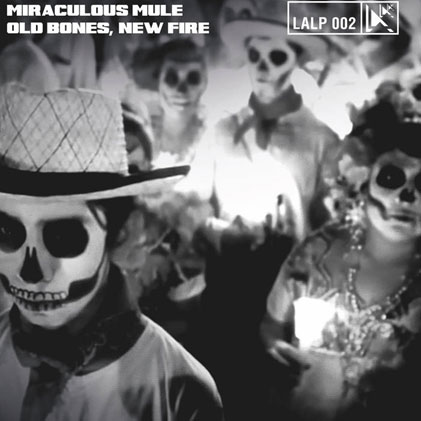


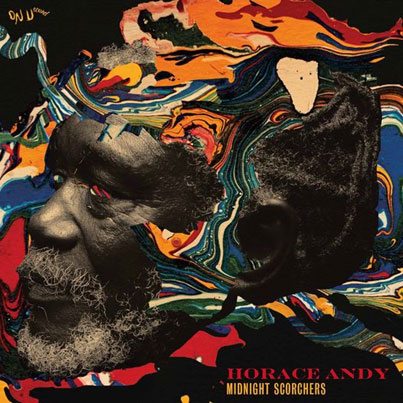
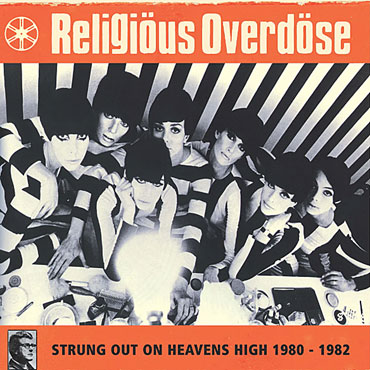
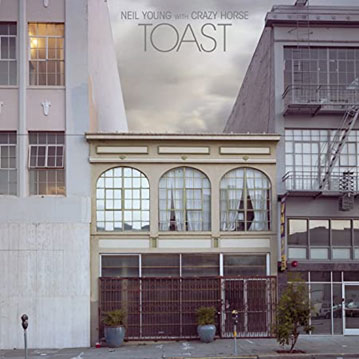




 Bird Guano’s
Bird Guano’s





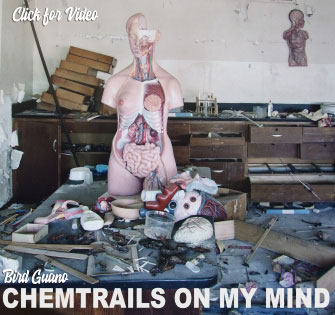
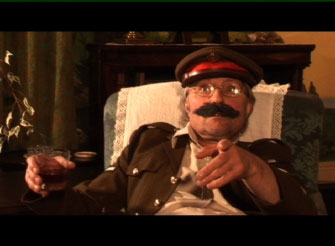



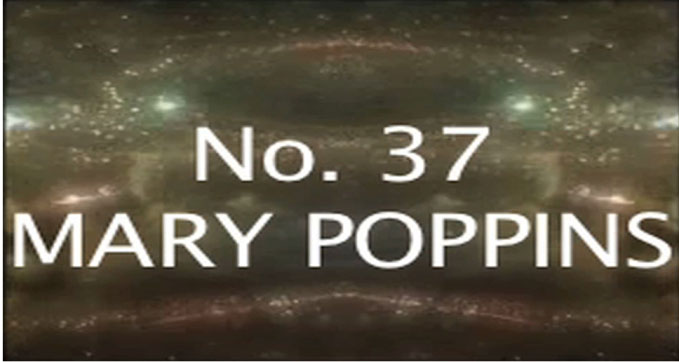








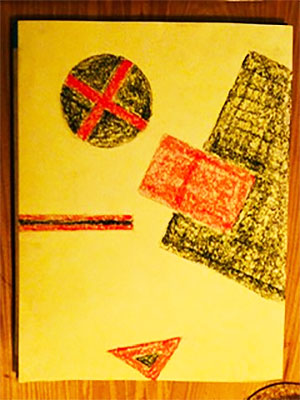
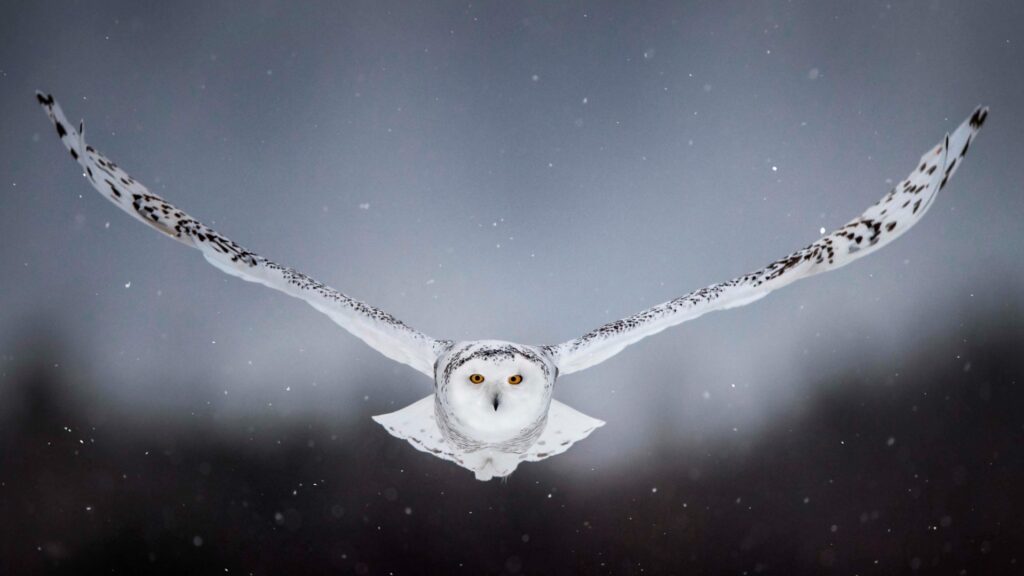







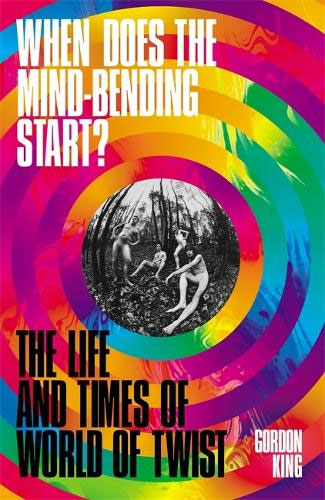
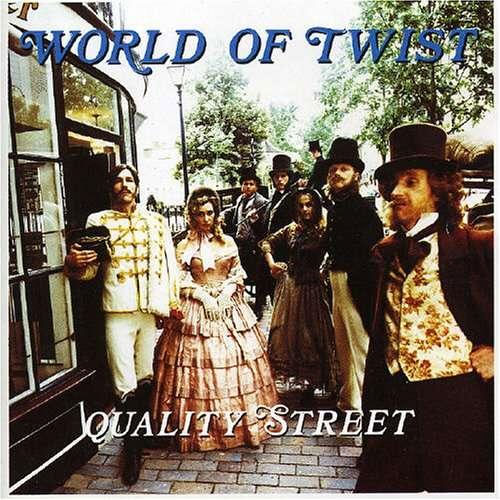
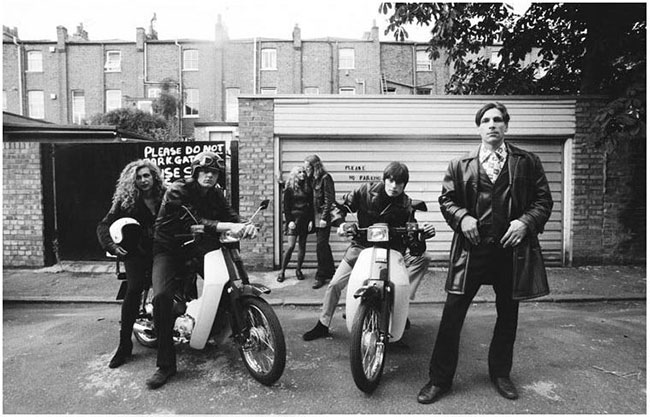
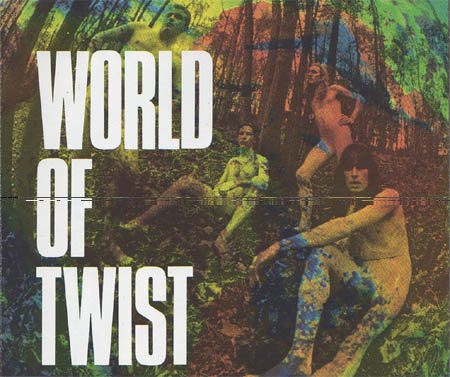


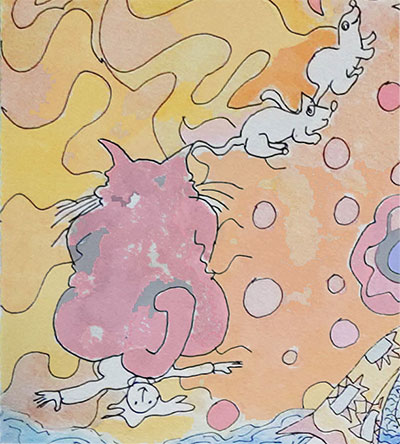




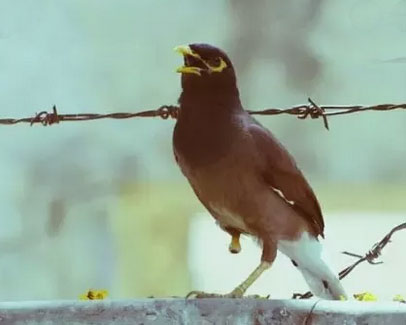
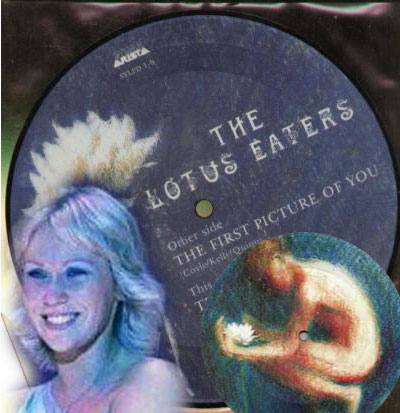



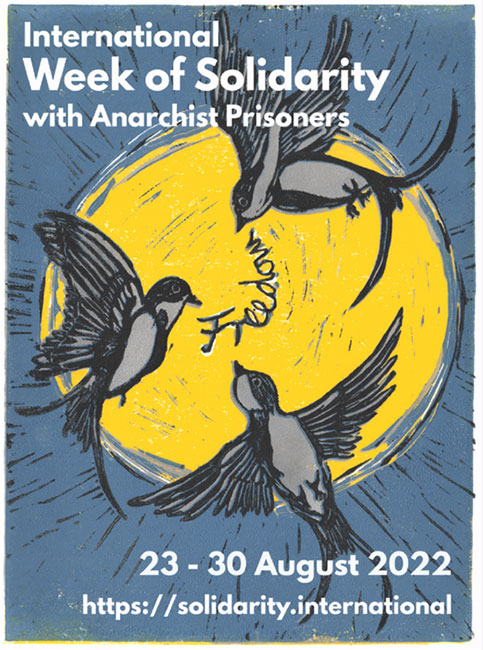
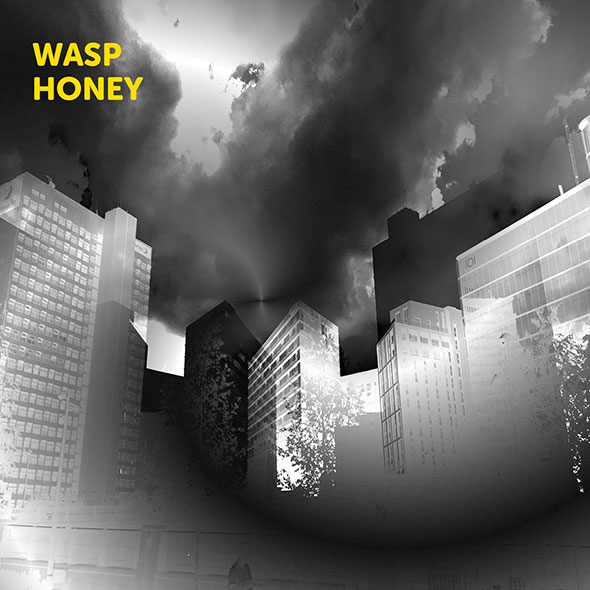
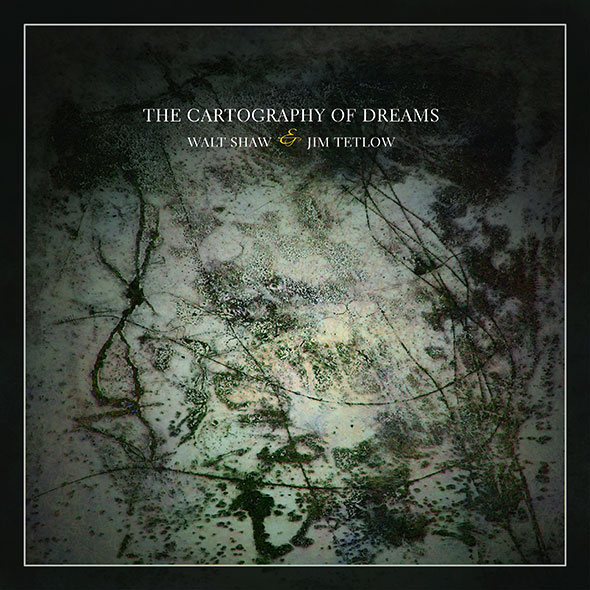

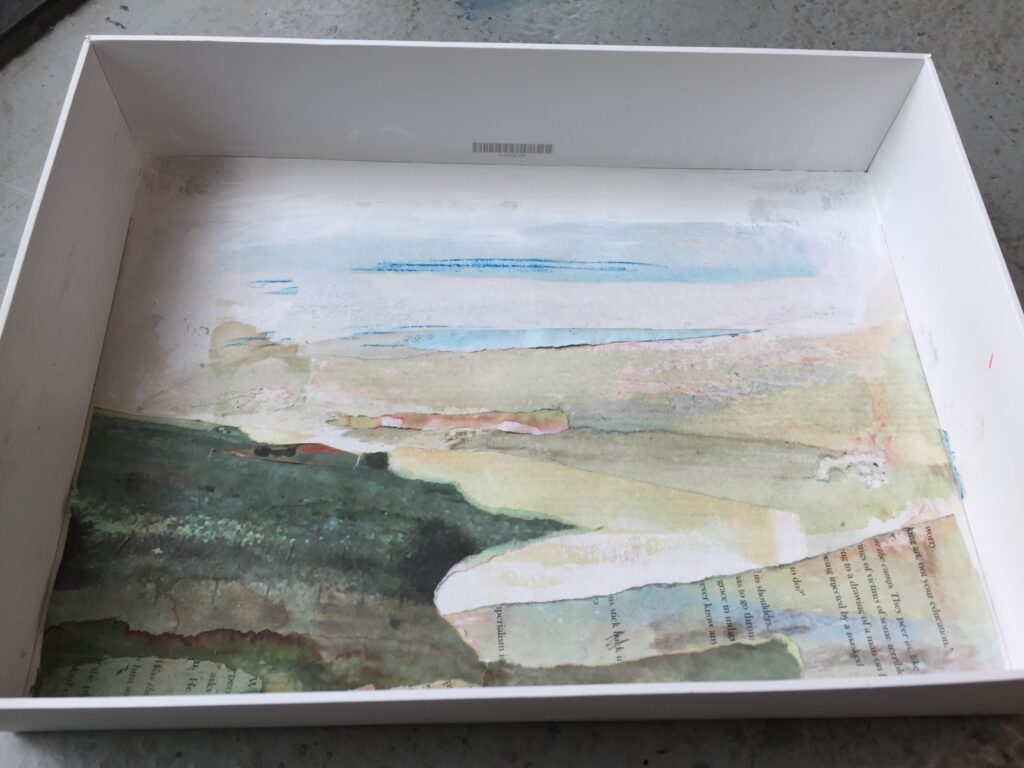
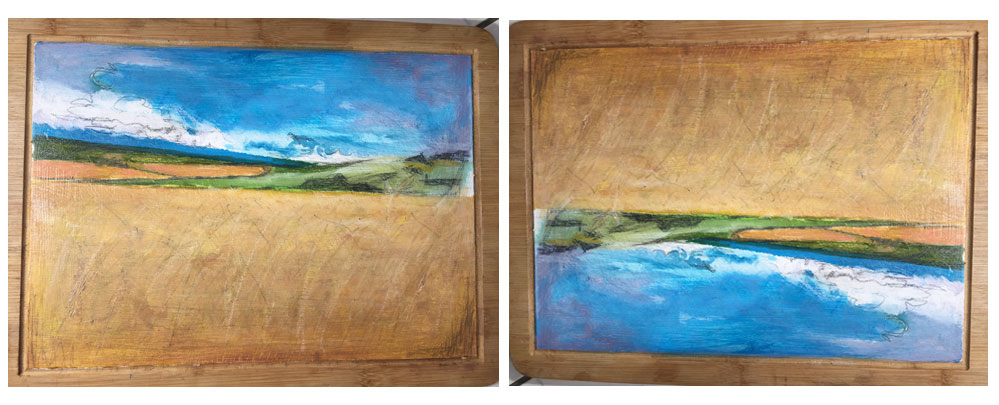








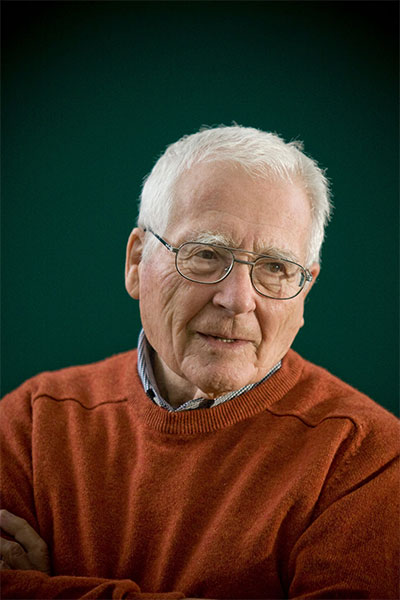

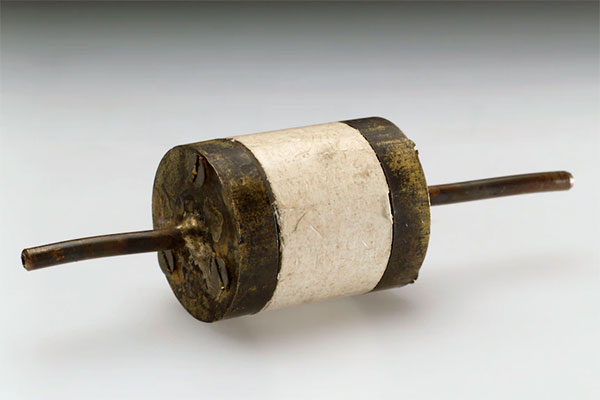
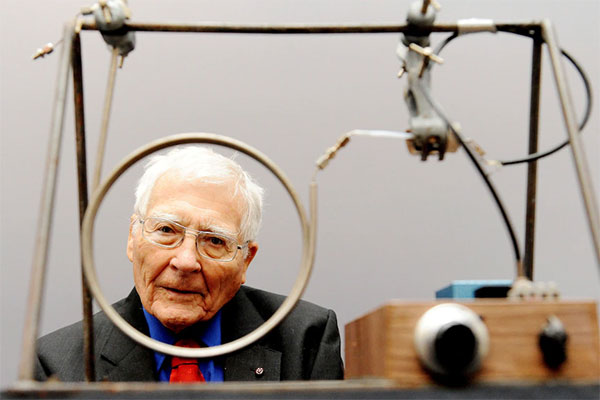
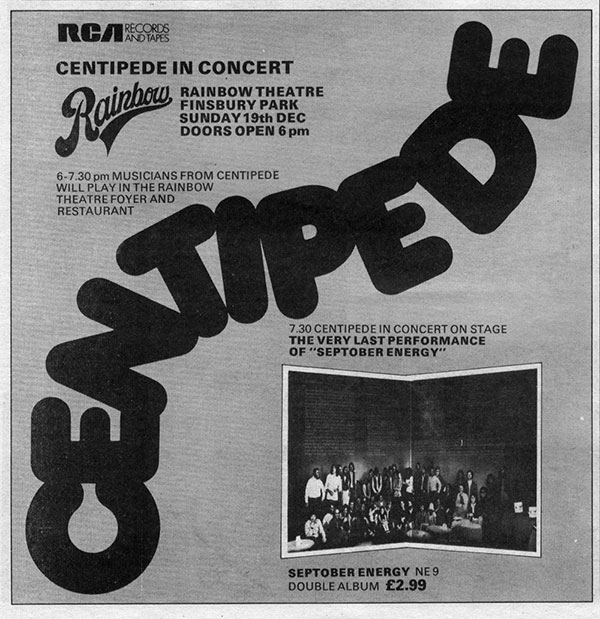

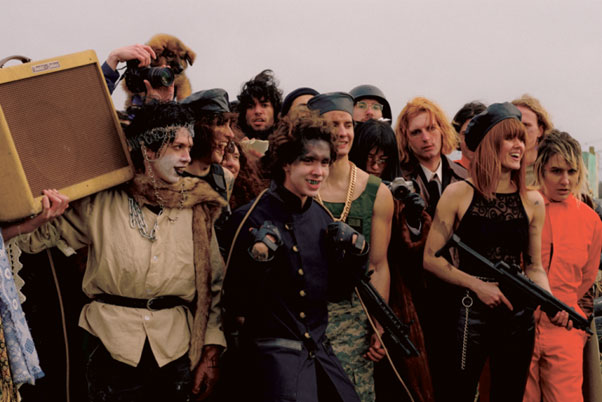

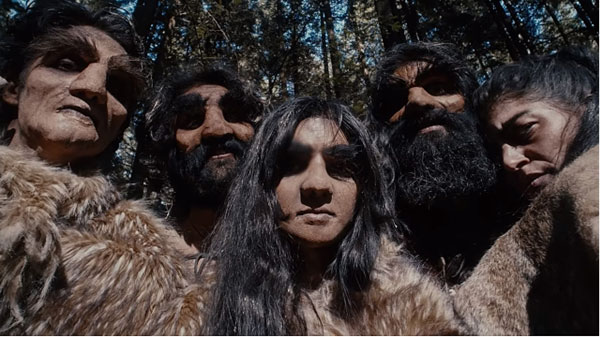



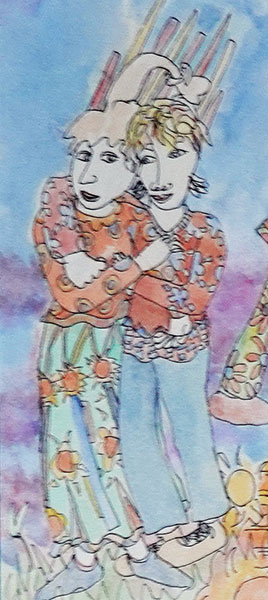




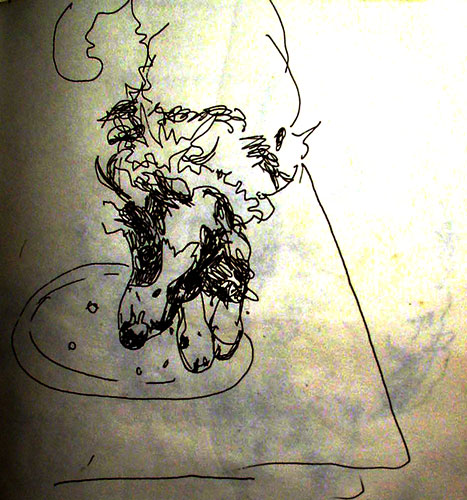


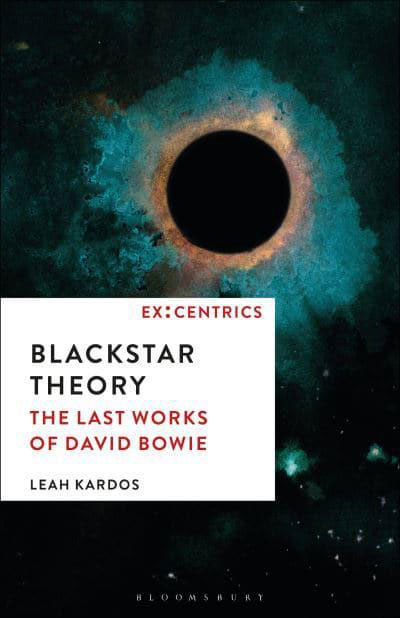







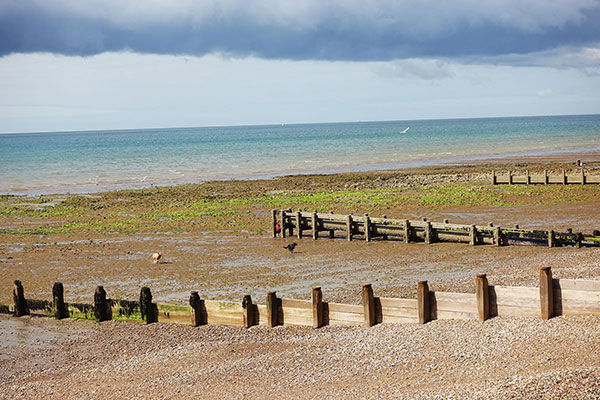







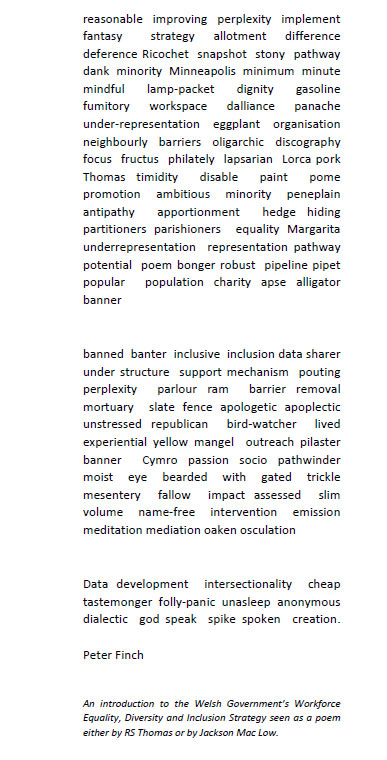


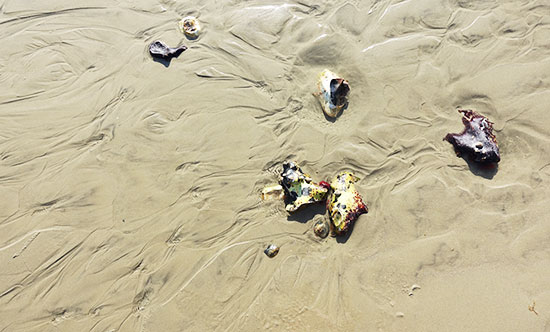

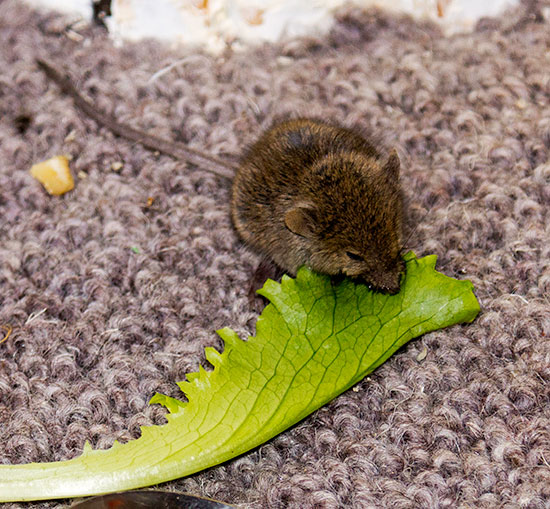




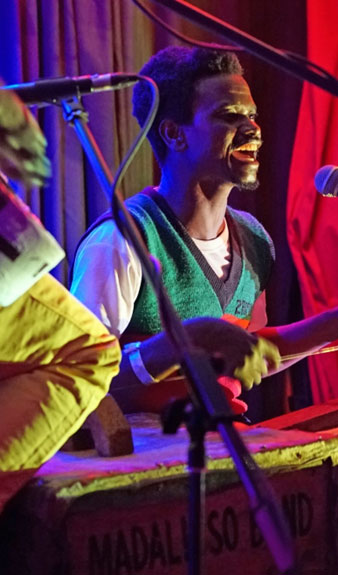
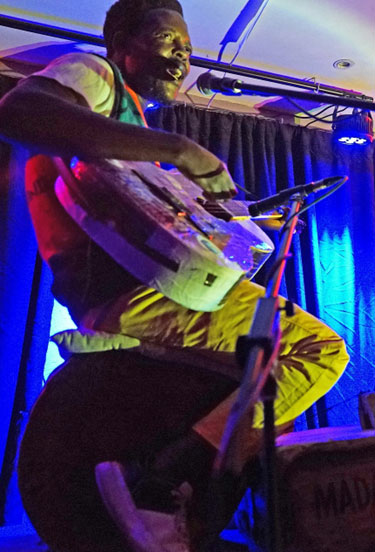





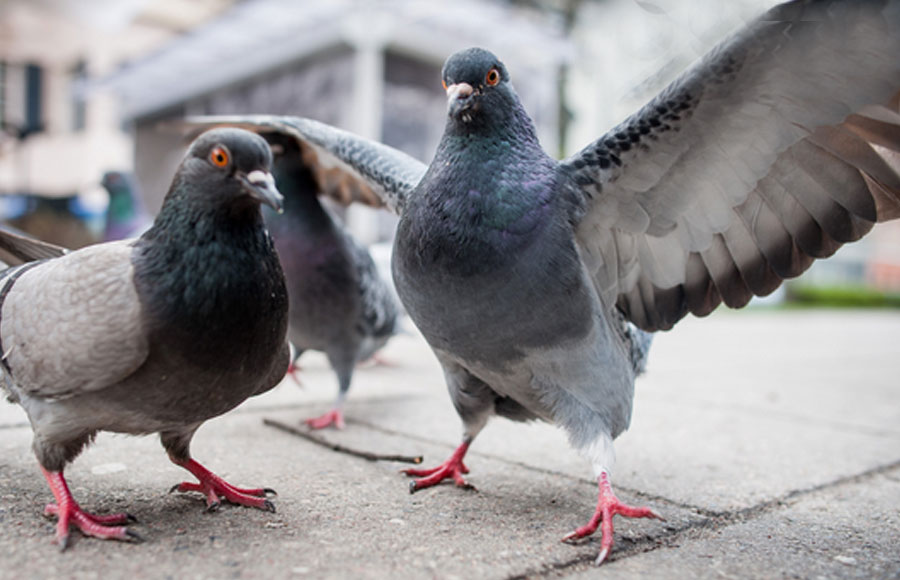
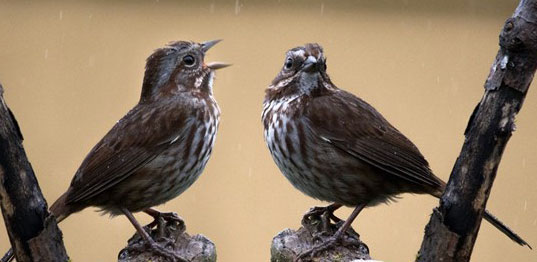

















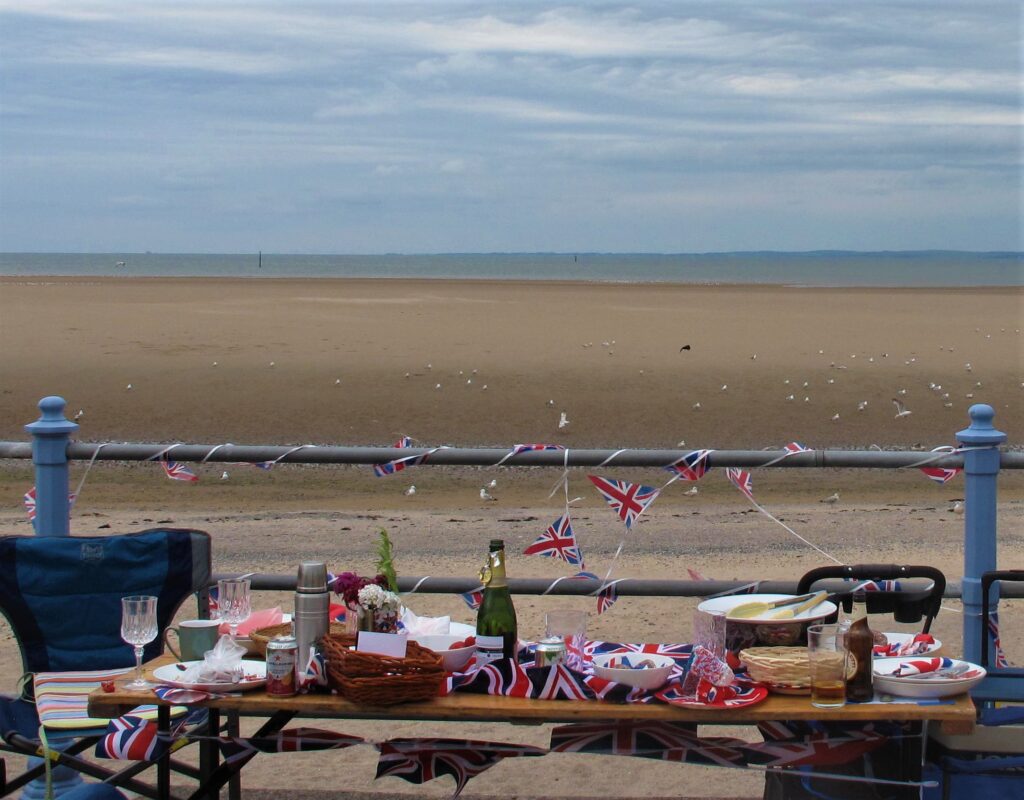
















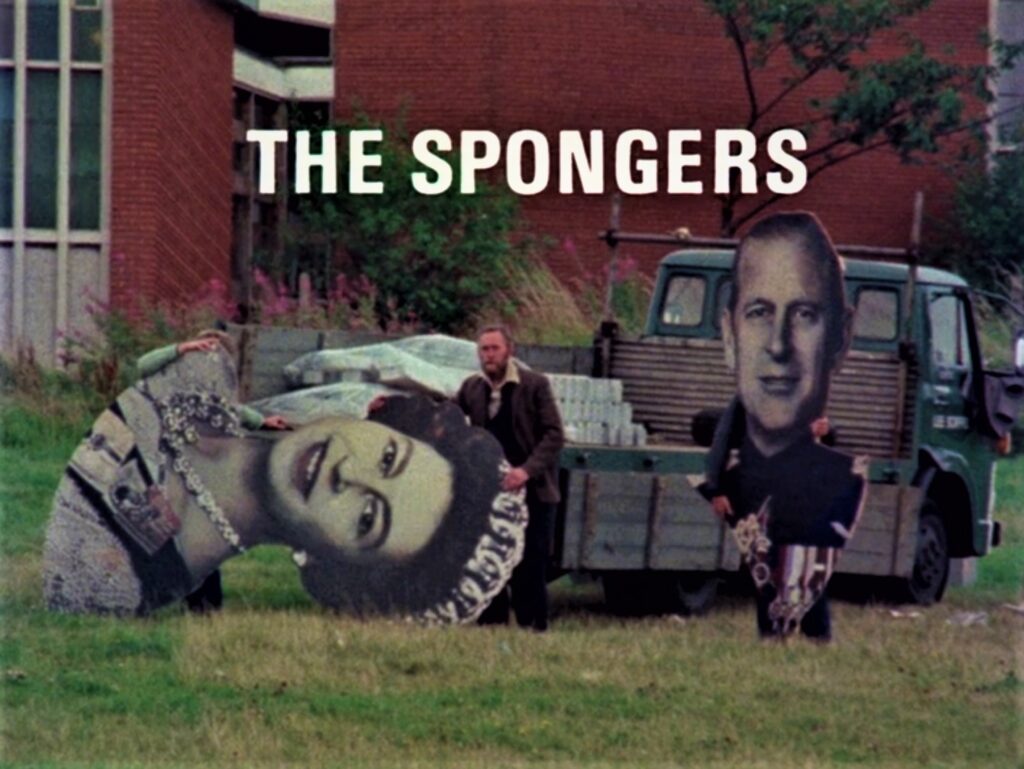





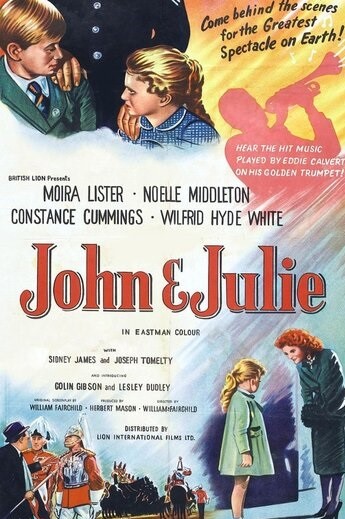 Poster for John & Julie (1955) – “Come behind the scenes for the Greatest Spectacle on Earth!”
Poster for John & Julie (1955) – “Come behind the scenes for the Greatest Spectacle on Earth!” 